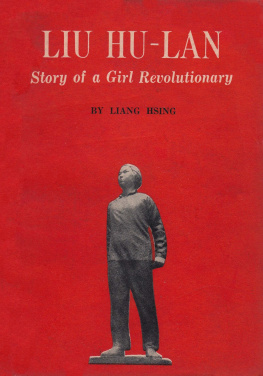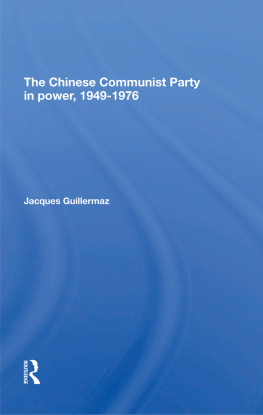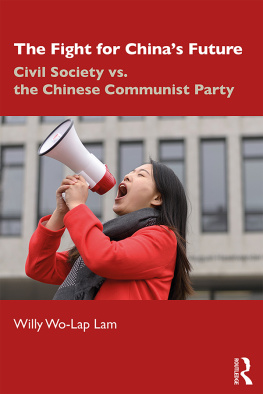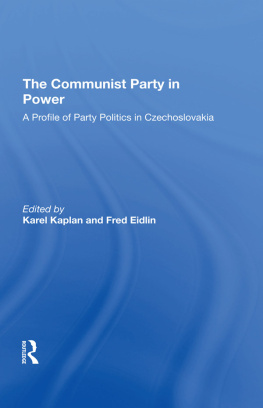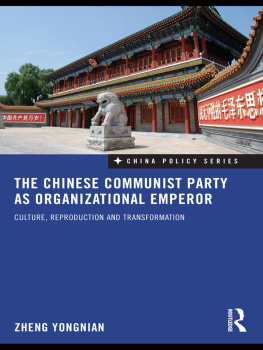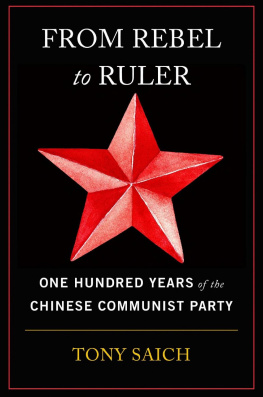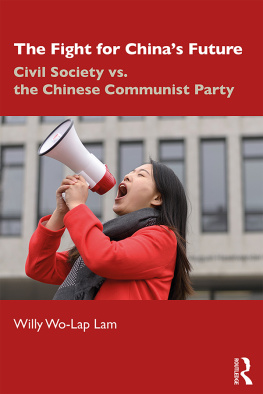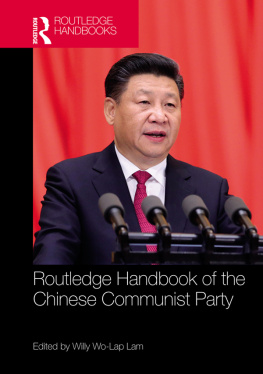Liang Hsing - Liu Hu-Lan: Story of a Girl Revolutionary
Here you can read online Liang Hsing - Liu Hu-Lan: Story of a Girl Revolutionary full text of the book (entire story) in english for free. Download pdf and epub, get meaning, cover and reviews about this ebook. year: 1953, publisher: Peking: Foreign Languages Press, genre: Non-fiction. Description of the work, (preface) as well as reviews are available. Best literature library LitArk.com created for fans of good reading and offers a wide selection of genres:
Romance novel
Science fiction
Adventure
Detective
Science
History
Home and family
Prose
Art
Politics
Computer
Non-fiction
Religion
Business
Children
Humor
Choose a favorite category and find really read worthwhile books. Enjoy immersion in the world of imagination, feel the emotions of the characters or learn something new for yourself, make an fascinating discovery.
- Book:Liu Hu-Lan: Story of a Girl Revolutionary
- Author:
- Publisher:Peking: Foreign Languages Press
- Genre:
- Year:1953
- Rating:4 / 5
- Favourites:Add to favourites
- Your mark:
- 80
- 1
- 2
- 3
- 4
- 5
Liu Hu-Lan: Story of a Girl Revolutionary: summary, description and annotation
We offer to read an annotation, description, summary or preface (depends on what the author of the book "Liu Hu-Lan: Story of a Girl Revolutionary" wrote himself). If you haven't found the necessary information about the book — write in the comments, we will try to find it.
Liu Hu-Lan: Story of a Girl Revolutionary — read online for free the complete book (whole text) full work
Below is the text of the book, divided by pages. System saving the place of the last page read, allows you to conveniently read the book "Liu Hu-Lan: Story of a Girl Revolutionary" online for free, without having to search again every time where you left off. Put a bookmark, and you can go to the page where you finished reading at any time.
Font size:
Interval:
Bookmark:
STORY OF A GIRL REVOLUTIONARY
BY LIANG HSING
FOREIGN LANGUAGES PRESS PEKING 1953
First Edition
August 1953
Printed in the Peoples Republic of China
epub version 1.0
In the central part of Shansi Province lies a famous plain. To the east, the Taiyueh Range extends, hill after hill, as far as the eye can see; to the west, the great towering peaks of the Luliang Range shut off the land that lies beyond. For hundreds of miles between these ranges stretches the great plain, and through it the river Fen curves round Taiyuan and then pursues its winding course southward towards the Yellow River. The creative genius and wisdom of the peasants, utilizing the waters of the Fen, have transformed this region into the richest wheat granary of the entire province. All who look out over this vast plain at harvest time nod with approval at the golden ocean of heavy ears of wheat.
Here, on October 8, 1932, in the village of Yun-chouhsi in Wenshui County, Liu Hu-lan uttered her first cry.
At this time, the peasants of the plain were also crying in despair. Despite such fertile land and such rich harvests, they were unable to straighten their backs or hold their heads erect. They were crushed beneath the oppression of the landlords, the bureaucrats, the warlords and the Kuomintang reactionaries. These exploiters, large and small, were resorting to every foul means and underhand trick to squeeze out the last drop of the peasants sweat and blood. The rich harvest reaped by the peasants labour flowed like a river, like the Fen; but unlike the Fen, the harvest flowed northward, sifting through many hands and eventually reaching Taiyuan, the granary of the Yen Hsi-shan brigands who ruled the city. The peasants sweat dripped on the wheat as they bent their backs in the field, and at home tears fell into then-empty bowls. Such was the plight of the peasants.
One day at twilight little Hu-lan sat in her old Grannys lap, clasping her neck with her two small hands, while Granny rocked gently with half-closed eyes listening to the sweet childish voice singing a local ballad:
The hills of Chiaocheng,
Oh, the stream of Chiaocheng,
It doesnt water the town of Chiaocheng,
It waters Wenshui;
Doesnt water the town of Chiaocheng,
But waters Wenshui.
The ballad tells of the poverty-stricken life of the peasants in the mountainous region of Chiaocheng, north of Wenshui. Although the peasants of the Wenshui plain were supposedly endowed with the Golden Rice Bowl, their life was as hard as that of the mountain folks. Granny stroked Hu-lans hair gently as the song went on; the more she listened the sadder she felt.
In the mountains of Chiaocheng,
There is nothing good to eat and drink,
There is only buckwheat meal,
And potatoes.
Only buckwheat meal.
And potatoes.
Granny sat motionless, listening to the song. After a long pause she heaved a deep sigh.
Outside it was getting dark, but to save lamp oil the family usually sat in the dark for quite a while. In the dim light, the childish treble sang on:
The little grey donkey goes up the hill,
The little grey donkey comes down.
All my life Ive never ridden
In a fine carriage.
All my life Ive never ridden
In a fine carriage.
When the song came to an end Granny became even quieter. She hugged Hu-lan tighter and smothered this favourite grand-daughter of hers with kisses. A long sigh followed. It was dark, and quiet reigned in the little home.
The year Hu-lan was born her father was a young peasant of twenty-eight. He and his elder brother lived with their father who had seen the better side of fifty. The three men had to work from morning till night to make ends meet. They neither sold their labour nor hired other hands to help them: the sweat of their own toil dripped on their own land. When the family expanded to eleven members, they owned about seven acres of land not all in one piece, but scattered here and there in ten small lots; and it was not very good land either. This middle peasant household had a little farmhouse at the western end of Yunchouhsi Village. The eaves were low and the courtyard small; the only difference between them and the poor peasants was that they had a place to themselves and did not share their main entrance with other families. There was an inscription over the entrance too, although not painted ostentatiously in gold and red letters like those on the doors of landlords. The workers who built the farmhouse had inscribed the three characters Peace is happiness. And this motto expressed the ideal of this middle peasant family, whose philosophy of life was: Live and let live. They were cautious and timid to a fault. Hu-lans Grandpa was rarely seen on the streets passing the time of day with friends, and her father seldom went outside to chat with neighbours. The family went only from the house to the fields and back again; then very carefully they closed and secured the little door of their house.
Such was the conservative middle peasant family in which Liu Hu-lan was born and brought up. But although it was fairly peaceful in their small courtyard, great changes were going on in the big world outside.
In 1936, when Hu-lan was four years old, the reactionary Kuomintang government was ignominiously selling out the country. The Japanese imperialist army had crossed the Great Wall and was invading North China. The Chinese Workers and Peasants Red Army, under the leadership of Chairman Mao Tse-tung, had concluded its Long March of 8,000 miles and had come to the North to resist the Japanese. On February 17, 1936, they crossed the Yellow River through northern Shensi and marched eastward to fight the invaders. On March 2, they occupied Fenyang and made the Yen Hsi-shan brigands in Taiyuan tremble.
Fenyang and Wenshui were neighbouring counties, only a few dozen miles apart. Guerilla detachments of the Red Army rapidly penetrated to the mountains west of Wenshui County, and although the Red Army did not enter Yunchouhsi the peasants spread tales about it of how the Red Army had surrounded Wenshui, and how in Kaisanchen, a town north of the county seat of Wenshui, they had confiscated eight hundred piculs of grain from the local despot Tu and distributed them to the poverty-stricken peasants. Hearing such accounts, the listeners clenched their fists in excitement and prayed that the Red Army would soon come to their village.
The Red Army scored victory after victory and extended its sphere of action. But in order to urge the Kuomintang to end the civil war so as to fight the Japanese, it withdrew to the western banks of the Yellow River. After the outbreak of the War of Resistance to Japanese Aggression, the Red Army, reorganized as the Eighth Route Army, once again crossed the Yellow River. From then on it stood in the forefront of the War of Resistance, its roots planted deep in the Northwest and North China, and continued to develop and swell its ranks.
Underground members of the Communist Party of China in Wenshui rallied the local people and organized a guerilla corps to fight the Japanese marauders. In January, 1938, after the Japanese had occupied the county seat, this guerilla corps engaged the Japanese invaders in battle for the first time in Hsicheng Village, only seven miles or so from Hu-lans home. The day the peasants had been looking forward to for so long had dawned, and they actually saw their own people fighting the Japanese! Armed peasants shuttled through the streets of the villages on Wenshui plain. One unit of fighting men had hardly left the village when another arrived. Everywhere there were meetings and singing. In this period nearly all the villages on the plain became guerilla bases in the war against the Japanese invaders.
Next pageFont size:
Interval:
Bookmark:
Similar books «Liu Hu-Lan: Story of a Girl Revolutionary»
Look at similar books to Liu Hu-Lan: Story of a Girl Revolutionary. We have selected literature similar in name and meaning in the hope of providing readers with more options to find new, interesting, not yet read works.
Discussion, reviews of the book Liu Hu-Lan: Story of a Girl Revolutionary and just readers' own opinions. Leave your comments, write what you think about the work, its meaning or the main characters. Specify what exactly you liked and what you didn't like, and why you think so.

